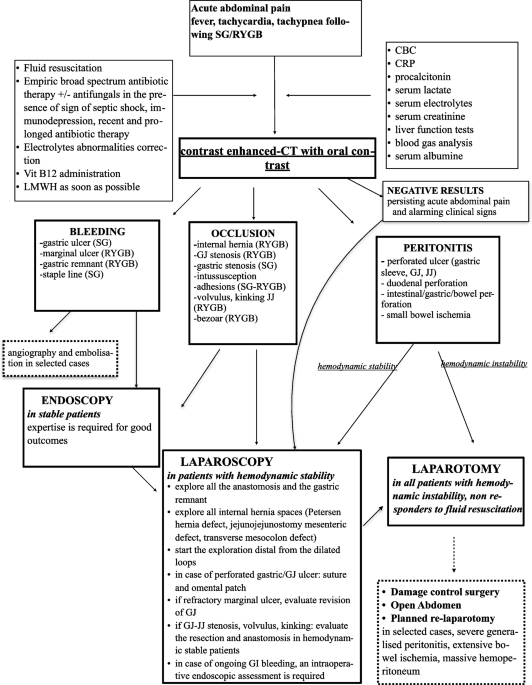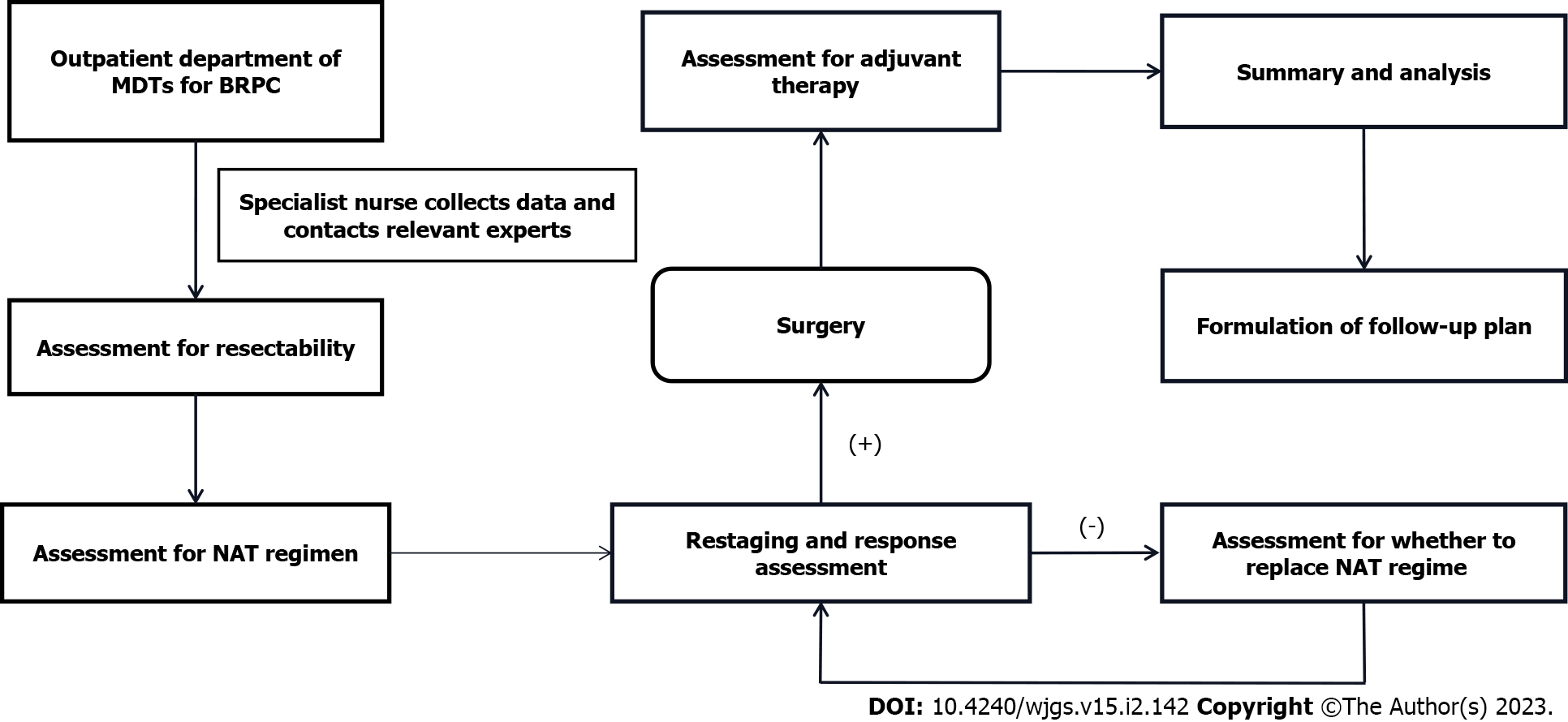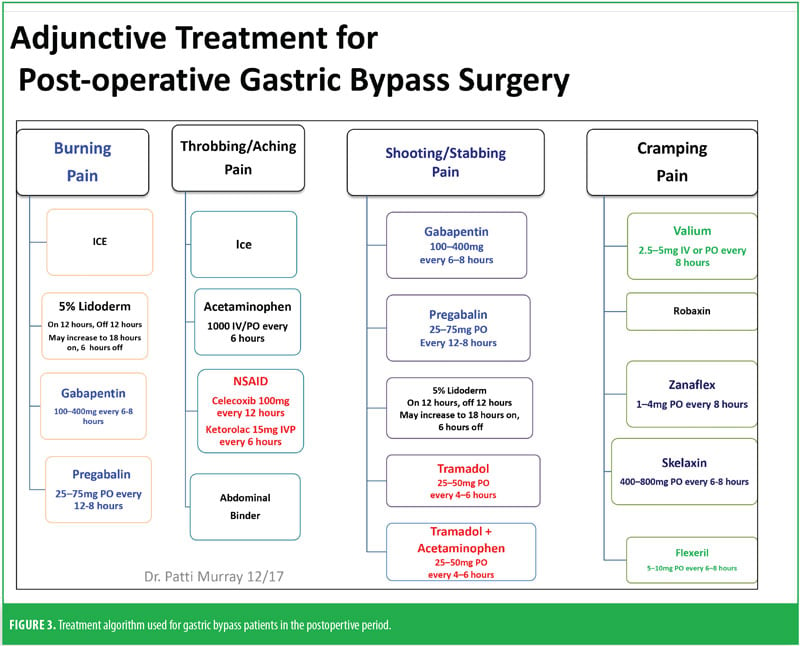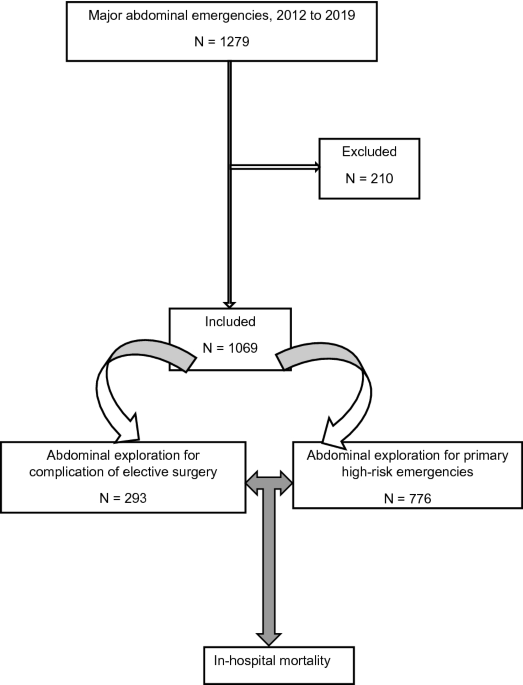Operative management of acute abdomen after bariatric surgery in the emergency setting: the OBA guidelines, World Journal of Emergency Surgery
$ 8.99 · 5 (211) · In stock

Background Patients presenting with acute abdominal pain that occurs after months or years following bariatric surgery may present for assessment and management in the local emergency units. Due to the large variety of surgical bariatric techniques, emergency surgeons have to be aware of the main functional outcomes and long-term surgical complications following the most performed bariatric surgical procedures. The purpose of these evidence-based guidelines is to present a consensus position from members of the WSES in collaboration with IFSO bariatric experienced surgeons, on the management of acute abdomen after bariatric surgery focusing on long-term complications in patients who have undergone laparoscopic sleeve gastrectomy and laparoscopic Roux-en-Y gastric bypass. Method A working group of experienced general, acute care, and bariatric surgeons was created to carry out a systematic review of the literature following the Preferred Reporting Items for Systematic Review and Meta-analysis Protocols (PRISMA-P) and to answer the PICO questions formulated after the Operative management in bariatric acute abdomen survey. The literature search was limited to late/long-term complications following laparoscopic sleeve gastrectomy and laparoscopic Roux-en-Y gastric bypass. Conclusions The acute abdomen after bariatric surgery is a common cause of admission in emergency departments. Knowledge of the most common late/long-term complications (> 4 weeks after surgical procedure) following sleeve gastrectomy and Roux-en-Y gastric bypass and their anatomy leads to a focused management in the emergency setting with good outcomes and decreased morbidity and mortality rates. A close collaboration between emergency surgeons, radiologists, endoscopists, and anesthesiologists is mandatory in the management of this group of patients in the emergency setting.

Common radiological exams requested to evaluate acute abdomen in
Bariatric surgery, hyper-homocysteinemia, and importance of vitamin B.

Fluid management in abdominal surgery: what, when, and when not to administer.

Comprehensive multimodal management of borderline resectable pancreatic cancer: Current status and progress

Clinical Practice Guidelines for the Perioperative Nutrition, Metabolic, and Nonsurgical Support of Patients Undergoing Bariatric Procedures – 2019 Update: Cosponsored by American Association of Clinical Endocrinologists/American College of

Hernia as a Complication of Metabolic Bariatric Surgery

Professor Zsolt Balogh / Staff Profile / The University of Newcastle, Australia

Operative management of acute abdomen after bariatric surgery in the emergency setting: the OBA guidelines, World Journal of Emergency Surgery

Bariatric Emergencies — NUEM Blog

Algorithm followed for our cases of GS post-LSG

Research and Scholarly Activity

PDF) The Operative management in Bariatric Acute abdomen (OBA) Survey: long-term complications of bariatric surgery and the emergency surgeon's point of view

Process Improvement: A Case Study Utilizing Pain Management Guidelines in the Care of Patients Following Bariatric Surgery : Bariatric Times

Total QoL after bariatric surgery according to the SF-36 questionnaire

Assessing differences in surgical outcomes following emergency abdominal exploration for complications of elective surgery and high-risk primary emergencies